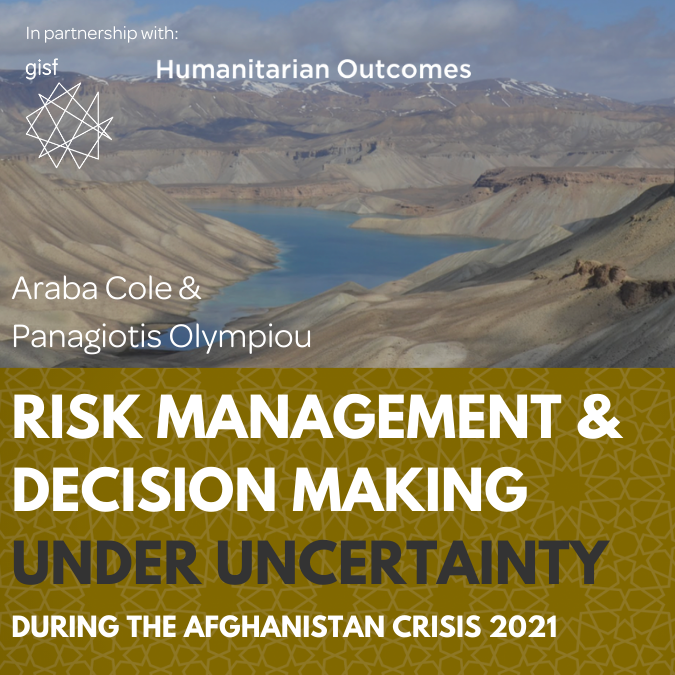The rapid Taliban takeover of Kabul in summer 2021 stunned the world, defying the expectations of casual onlookers and experts alike. The humanitarian response was an extreme example of crisis decision-making under conditions of radical uncertainty. This study seeks to draw lessons from this experience for use by security risk management practitioners in today’s complex operational environments.
Drawing upon contemporary thinking on risk, uncertainty, and security risk management in the humanitarian sector, and through a combination of surveys and interviews, the authors explored the crisis management practices surrounding the Taliban takeover of Kabul, on 15th August 2021. This report delves into how individuals and organisations engaged with the uncertain nature of the developments of the period in question, and what was the impact of uncertainty, narratives and cognitive biases on contextual analysis and its operational implementation. It explores some of the behavioural and psychological aspects of crisis and security risk management the authors encountered in their research and discusses how SRM could benefit from calibrating tools and processes to such human characteristics.
Suggested Citation
Cole, A. & Olympiou, P. (2022) Risk Management & Decision Making Under Uncertainty During the Afghanistan Crisis 2021
